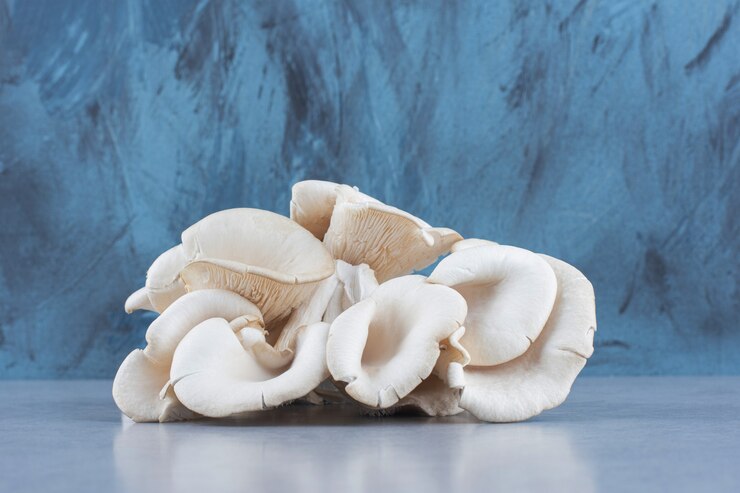In recent years, mushroom supplements have gained immense popularity in the wellness community. These supplements, derived from various types of medicinal mushrooms, are celebrated for their potential to enhance overall health and well-being. In this comprehensive guide, we will explore the different types of mushroom supplements, their health benefits, and how to incorporate them into your daily routine.
What Are Mushroom Supplements?
Mushroom supplements are dietary products made from extracts of medicinal mushrooms. These mushrooms have been used for centuries in traditional medicine practices, particularly in Asian countries like China and Japan. The supplements are available in various forms, including capsules, powders, and tinctures, making them easy to incorporate into your daily routine.
Types of Medicinal Mushrooms
There are several types of medicinal mushrooms, each with unique health benefits. Here are some of the most popular ones:
1. Reishi (Ganoderma lucidum)
Reishi mushrooms are known for their calming effects and are often used to promote relaxation and improve sleep quality. They are also believed to boost the immune system and have anti-inflammatory properties.
2. Lion’s Mane (Hericium erinaceus)
Lion’s Mane is celebrated for its cognitive-enhancing abilities. It may help improve memory, focus, and overall brain function. Additionally, it has been linked to nerve regeneration and may support mental health.
3. Cordyceps (Cordyceps sinensis)
Cordyceps are known for their energy-boosting properties. They may enhance athletic performance, improve stamina, and increase oxygen utilization in the body. Cordyceps are also thought to support lung health.
4. Chaga (Inonotus obliquus)
Chaga mushrooms are rich in antioxidants, making them powerful in fighting oxidative stress and inflammation. They are believed to support immune function and promote healthy skin.
5. Shiitake (Lentinula edodes)
Shiitake mushrooms are known for their immune-boosting properties. They are rich in vitamins and minerals, particularly vitamin D, and may support cardiovascular health.

Health Benefits of Mushroom Supplements
Incorporating mushroom supplements into your diet can offer a wide range of health benefits. Here are some of the most notable ones:
1. Immune System Support
Many medicinal mushrooms are known for their immune-boosting properties. They contain beta-glucans, which are compounds that enhance the body’s immune response. Regular consumption of mushroom supplements can help strengthen your immune system and protect against illnesses.
2. Enhanced Cognitive Function
Certain mushrooms, such as Lion’s Mane, have been shown to improve cognitive function. They may enhance memory, focus, and overall brain health. This makes them a popular choice for individuals looking to boost their mental performance.
3. Increased Energy and Stamina
Cordyceps mushrooms are particularly noted for their ability to increase energy levels and improve stamina. They help the body utilize oxygen more efficiently, which can enhance athletic performance and reduce fatigue.
4. Anti-Inflammatory Properties
Many medicinal mushrooms have anti-inflammatory properties, which can help reduce inflammation in the body. This is beneficial for individuals with chronic inflammatory conditions, such as arthritis.
5. Antioxidant Effects
Mushrooms like Chaga are rich in antioxidants, which help fight oxidative stress and protect the body from damage caused by free radicals. This can lead to improved skin health and overall well-being.
6. Cardiovascular Health
Some mushrooms, such as Shiitake, are known for their cardiovascular benefits. They contain compounds that may help lower cholesterol levels and improve heart health.
How to Choose the Right Mushroom Supplement
When selecting a mushroom supplement, it’s important to consider the following factors:
1. Type of Mushroom
Choose a supplement that contains the specific type of mushroom that aligns with your health goals. For example, if you’re looking to boost your cognitive function, opt for a supplement that contains Lion’s Mane.
2. Quality of Ingredients
Look for supplements made from high-quality, organic mushrooms. Ensure that the product is free from additives, fillers, and artificial ingredients.
3. Extraction Method
The extraction method used to produce the supplement can affect its potency and effectiveness. Look for products that use hot water or alcohol extraction methods, as these are known to yield the highest concentration of beneficial compounds.
4. Dosage and Form
Consider the dosage and form of the supplement. Capsules and powders are convenient options, but tinctures may offer faster absorption. Follow the manufacturer’s recommended dosage for best results.
How to Incorporate Mushroom Supplements into Your Routine
Incorporating mushroom supplements into your daily routine is easy and can be done in several ways:
1. Capsules and Tablets
Capsules and tablets are a convenient option for those who prefer a quick and easy way to take their supplements. Simply follow the recommended dosage on the packaging.
2. Powders
Mushroom powders can be added to smoothies, coffee, tea, or other beverages. They can also be mixed into soups, stews, and other dishes.
3. Tinctures
Tinctures are liquid extracts that can be taken directly under the tongue or added to beverages. They are quickly absorbed by the body and are a good option for those looking for fast-acting effects.

Potential Side Effects and Precautions
While mushroom supplements are generally considered safe, it’s important to be aware of potential side effects and precautions:
1. Allergic Reactions
Some individuals may be allergic to certain types of mushrooms. If you experience any signs of an allergic reaction, such as itching, swelling, or difficulty breathing, discontinue use and seek medical attention.
2. Interactions with Medications
Mushroom supplements may interact with certain medications, such as blood thinners or immunosuppressants. If you are taking any medications, consult with your healthcare provider before starting a mushroom supplement.
3. Pregnancy and Breastfeeding
If you are pregnant or breastfeeding, it’s best to consult with your healthcare provider before taking any new supplements, including mushroom supplements.
Conclusion
Mushroom supplements offer a wide range of health benefits, from boosting the immune system to enhancing cognitive function and increasing energy levels. By choosing high-quality products and incorporating them into your daily routine, you can take advantage of the many potential benefits these powerful fungi have to offer.



